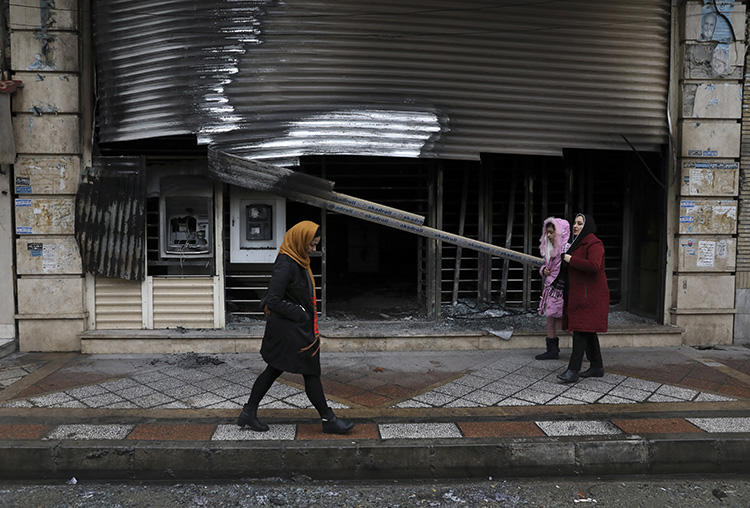Washington, D.C., November 25, 2019 — Iranian authorities should immediately release journalist Mohammad Mosaed and drop any charges against him, the Committee to Protect Journalists said today.
On November 22, security forces from Iran’s Ministry of Intelligence arrested Mosaed, a freelance economic reporter, at his home in Tehran, according to reports by U.S.-funded broadcaster Radio Farda and German public broadcaster Deutsche Welle.
Mosaed was arrested for posting two tweets on November 19, according to an unnamed source who spoke to the U.S.-funded Voice of America’s Persian service. At the time, internet service was cut off throughout the country amid protests over high gas prices that began on November 16, according to news reports.
During the internet blackout, Mosaed tweeted “Hello Free World!” and said he was using “42 different proxies” to access the internet, according to a screenshot of that post taken before his account was suspended on November 23. He also tweeted a congratulations to other Iranians who had been able to bypass the internet shutdown, according to Radio Farda.
Mosaed was a reporter at the Shargh Daily newspaper until his resignation on July 3, 2019, allegedly under pressure from allies of Minister of Labor Mohammad Shariatmadari, whom he had accused of corruption in his reporting for the newspaper, according to a report by exile-run news website IranWire. Since his resignation, Mosaed expressed his political views on Twitter, according to that report.
No charges have been announced against Mosaed, according to those reports. Internet access was restored in Iran on November 23, according to news reports.
“With the arrest of Mohammad Mosaed, the Iranian government is continuing its absurd practice of arbitrarily detaining journalists without charge,” said Justin Shilad, CPJ’s senior Middle East and North Africa researcher, in New York. “Authorities must release Mosaed immediately and allow journalists and all Iranians to freely access the internet at this time of social unrest.”
CPJ is also investigating the case of Melika Gharegozlou, a freelance journalist and a journalism student at Allameh Tabataba’i University, who was arrested by police on November 18, according to a report by the U.S.-based outlet Human Rights Activists News Agency (HRANAR).
Police also arrested at least 50 students at the university, according to that report, and CPJ was unable to determine whether Gharegozlou’s arrest was related to her journalism.
A university official confirmed Gharegozlou’s arrest to the Human Rights Activists News Agency, and said that she was ill and would likely be released soon for medical reasons.
